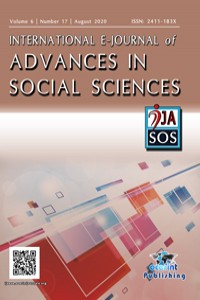Abstract
The Planet Earth consists of various major components in order to sustain life on it. Every living creature generates waste or by-product. Waste disposal is the process of organisms returning substances back to the environment. It is anything that is purposeless or unwanted and requires disposal. Like any other process, it requires management which refers to a set of functions of organizing, planning, controlling and directing of resources. Therefore, waste management describes the procedures of the collection, conveyance, recycling or disposal and examining of waste. The entire process must be planned well, in order to avoid any discomfort or hazards to the living creatures (human/non-human). According to a study, the world generates over 2.6 trillion pounds of garbage each year. The first-ever method of waste management was documented to be in 3000 B.C. Landfills were developed and garbage was dumped and filled with dirt at various levels. Currently, Germany holds the highest standard in recycling across the world. Technology is a tool that has been repeatedly used to enhance processes. With the rise of innovations such as the Internet of Things (IoT) and smart cities, the process of waste management has become a contender for enhancement. With the World producing different types of waste, researchers are struggling to define the most suitable waste management technique. Our education system must incorporate at least some modules in this direction, to implement and find its effectiveness. This paper will explore and review different waste management techniques, methods and research work, which has been implemented in various parts of the world. Further, the paper will explore various technologies related to IoT and how it can be implemented to manage the above-mentioned issue accordingly. The researchers will provide a critical review and discussion of the techniques explored based on the findings of their study.
References
- Schwab, K., 2016. The Fourth Industrial Revolution: What It Means And How To Respond. [online] World Economic Forum. Available at: <https://www.weforum.org/agenda/2016/01/the-fourth-industrial-revolution-what-it-means-and-how-to-respond/> [Accessed 5 August 2019].
Abstract
References
- Schwab, K., 2016. The Fourth Industrial Revolution: What It Means And How To Respond. [online] World Economic Forum. Available at: <https://www.weforum.org/agenda/2016/01/the-fourth-industrial-revolution-what-it-means-and-how-to-respond/> [Accessed 5 August 2019].
Details
| Primary Language | English |
|---|---|
| Journal Section | Articles |
| Authors | |
| Publication Date | September 14, 2020 |
| Submission Date | June 7, 2020 |
| Published in Issue | Year 2020Volume: 6 Issue: 17 |
Contact: ijasosjournal@hotmail.com
The IJASOS Journal's site and its metadata are licensed under CC BY
Published and Sponsored by OCERINT International © 2015- 2025


